
Gamboa is the last name of a Costa Rican carrier who arrived at the Nicaraguan-Costa Rican border on May 6. He came from Honduras. That day, he ran into a long line that stretched from Rivas to Peñas Blancas. There he waited until he was able to cross the border on Saturday, May 9, to get tested for COVID-19. The negative result came until Monday the 11th and until then they let him pass with his truck.
What usually takes Gamboa a day, in this context of the pandemic, took him five full days. From Tuesday May 5, the Government of Costa Rica began to reject the entry of foreign carriers with symptoms of the new coronavirus and to test all the others at the border posts of Peñas Blancas and Tablillas (with Nicaragua) and Paso Canoas and Sixaola ( with Panama).
As two tested positive in the first days of the measure, Health established that carriers should wait for the result at the border, before entering the country. The rule began to take effect on Friday, May 8 at 3 p.m.
The tests are analyzed at the San Juan de Dios Hospital, so the results take 24 to 72 hours to arrive. Carriers, like Gamboa, manage to get tested two or three days after queuing in Nicaragua.
Until this Thursday, May 14, 30 foreigners working in transportation tested positive on both borders. Therefore, health officials denied their entry to the country. The International Health Regulations dictate that the ministry must communicate the positive case to the authorities of the person’s country of origin.
If the result of a national carrier is positive, they issue the sanitary isolation order to quarantine at home. But if he is a foreigner, the officials of the Professional Migration Police (PPM), hooded with white protective equipment from head to toe, escort them until they are sure that they have left the national territory. This is stated in images taken by Repretel News.
The officials of the Ministry of Health confirm [the positive result] and the rejection is executed, giving these people the respective act of rejection, which is the return of the person to Nicaraguan territory,” the deputy head of the PPM explained to Repretel, Alonso Soto.
Kilometric lines
The carriers were already upset since before this measure. They even made a blockade on April 29 at the border to protest against the rule that they could only stay in the country for 72 hours.
The government then allowed them to increase their stay to 10 days, but then the massive testing began and the Peñas Blancas border collapsed again. The lines to cross grew longer and with it, the despair of the carriers grew.
“I entered the border on 7 [May]. They put me the stamp, I went to get the number to do the test and I did it on the 8th at 10 a.m. More than 48 hours have passed and so far the test has not arrived, “said a foreign carrier to the local newspaper La Cruz T.V. on monday, May 11. He had been at the border, on the side of Costa Rica, for four days and another time on the Nicaraguan border.
The video shows several carriers who, according to the journalist from La Cruz T. V. and the driver he was interviewing at the time, were complaining to Health and Immigration officials for the delay in analyzing the tests.
There is nowhere to bathe and eat, and the situation is already uncomfortable. You have to come and wait, take the test and the different cultures are already colliding. It becomes a tense environment for the claims, ‘why do that which is not important’, “said the Costa Rican Gamboa.
La Cruz TV has reported on several occasions about the long lines of the vehicles, the crowds of the drivers and the complaints of the drivers about the slow protocol. The videos show the green tents where the CCSS officials take the samples and the little distance that the drivers keep between them.
“They [those who complain] do not understand or simply think that it is a game, but it is not. You have to be responsible and accept the measures,” added Gamboa.
The director of the National Chamber of Freight Forwarders (Canatrac) Francisco Quirós, agrees with him. “We understand that health security prevails over any other purpose,” he said in an interview with La Voz de Guanacaste. However, Health is expected to speed up the results of the tests.
“We would hope that the 24 to 48 hour wait that was taking place would drop considerably and thus be able to streamline the goods,” he said. “We are concerned about all merchandise, but mainly perishables (refrigerated products or live animals), which have some limited time to reach their destination.”
Health Minister Daniel Salas assured at the conference on Monday, May 11 that they are working to “optimize flows and dynamics to shorten times.” But that, meanwhile, the carriers and businessmen are the ones who assume the risks of what happens with the products they load.
The CCSS announced since April 13 that tests to detect COVID-19 would be carried out in regional hospitals. However, the director of the Liberian hospital, Marvin Palma, confirmed that they have not yet reached his health center. “We are waiting for the contractor to send the samples and the equipment here,” Palma said.
La Voz de Guanacaste tried to meet the criteria of the CCSS authorities during today’s conference, May 14. The medical manager, Dr. Mario Ruiz replied that the delay is due to “provider logistics issues”
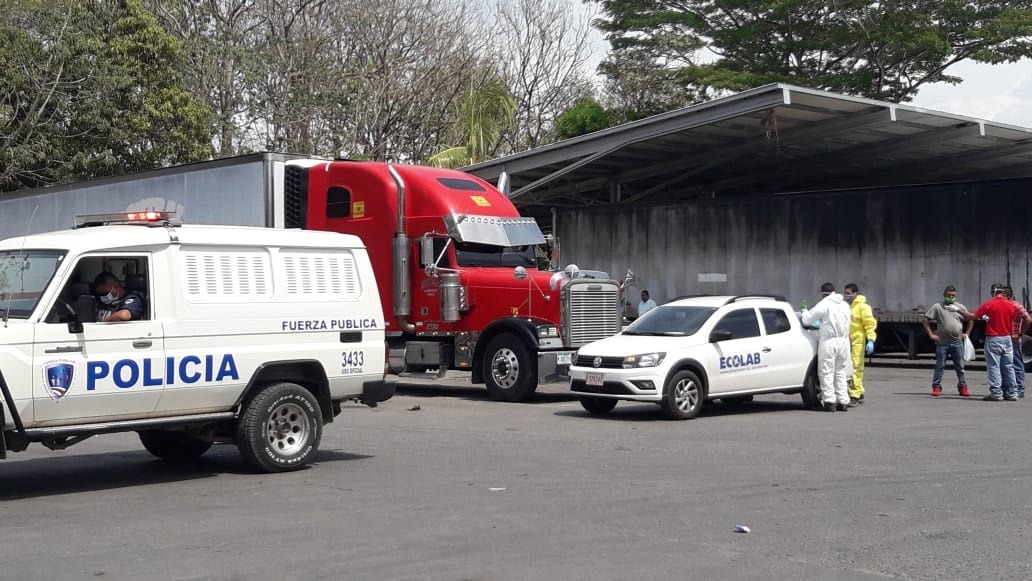
The health and migration authorities at Peñas Blancas border, in La Cruz canton, must use personal protective equipment during their working hours. This is dictated by the Health guideline for the care of carriers. Photo: Courtesy of La CruzTV
Risk at the border
When the drivers arrive at the border, they leave the trucks in the parking lot and walk to an awning where CCSS officials take the sample.
While awaiting the outcome, carriers can walk unrestrictedly across the border, talk to other colleagues, and even travel 20 kilometers to La Cruz in taxis or other vehicles. That leaves other carriers or people in La Cruz community on the verge of possible contagion.
For example, if two carriers were tested at the same time and then chat or eat together, even if one was negative and the other positive, the second one could have been infected in the more than 24 hours that they waited for their results together.
“In my case, in the least I am where there is a lot of people. Only for what is necessary, go to have breakfast, lunch and dinner as far away as possible,” said Gamboa.
Because of that risk, the Canatrac director emphasized that carriers must keep their distance. “As much as possible, we ask that you stay in your transport units.”
Medical care to positive carriers
At least two carriers have passed out at the Peñas Blancas border. One of them was positive for coronavirus, confirmed Minister Daniel Salas.
“The carrier who passed out yesterday [Sunday May 10], was indeed diagnosed as positive COVID-19 and is currently being treated,” the minister said at the press conference on May 11 without giving details on what type of attention they gave him.
This media consulted Salas at the conference on Wednesday, May 13, if the Health authorities have considered setting up a post to attend to those who become more ill while awaiting the result. “We have been evaluating it because what we are looking for is that we do not have more transmission and more cases in the country in that sector,” said Salas.
We have been in border valuation and have had meetings every day to see how we can make the best handling of the carriers,” added.
The Canatrac director said that the transport sector knows that neither the Peñas Blancas border crossing nor any other in Central America provides the adequate conditions for a worker to stay for several days. “But we make that call for patience, we know that the carrier is rather lacking in patience. Let’s hope very few days to have a fluidity in the border crossing, let’s say, normal,” he said.
He also said that he has held meetings with other directors of Central American chambers and that everyone is aware of the health situation facing the region.
“At the moment, our Central American colleagues also understand the protocols that Costa Rica is applying, and here we could see two points of view, one is national security and also security for the carrier,” he added.
The latest report from the Ministry of Health indicates that the country has 830 confirmed cases of COVID-19, 535 are recovered and 287 active. In Guanacaste there are 33 confirmed cases, 14 are recovered and 19 active: 8 in Cañas, 6 in Bagaces, 3 in Liberia, 1 in La Cruz and 1 in Santa Cruz.
*Gamboa asked not to reveal his name



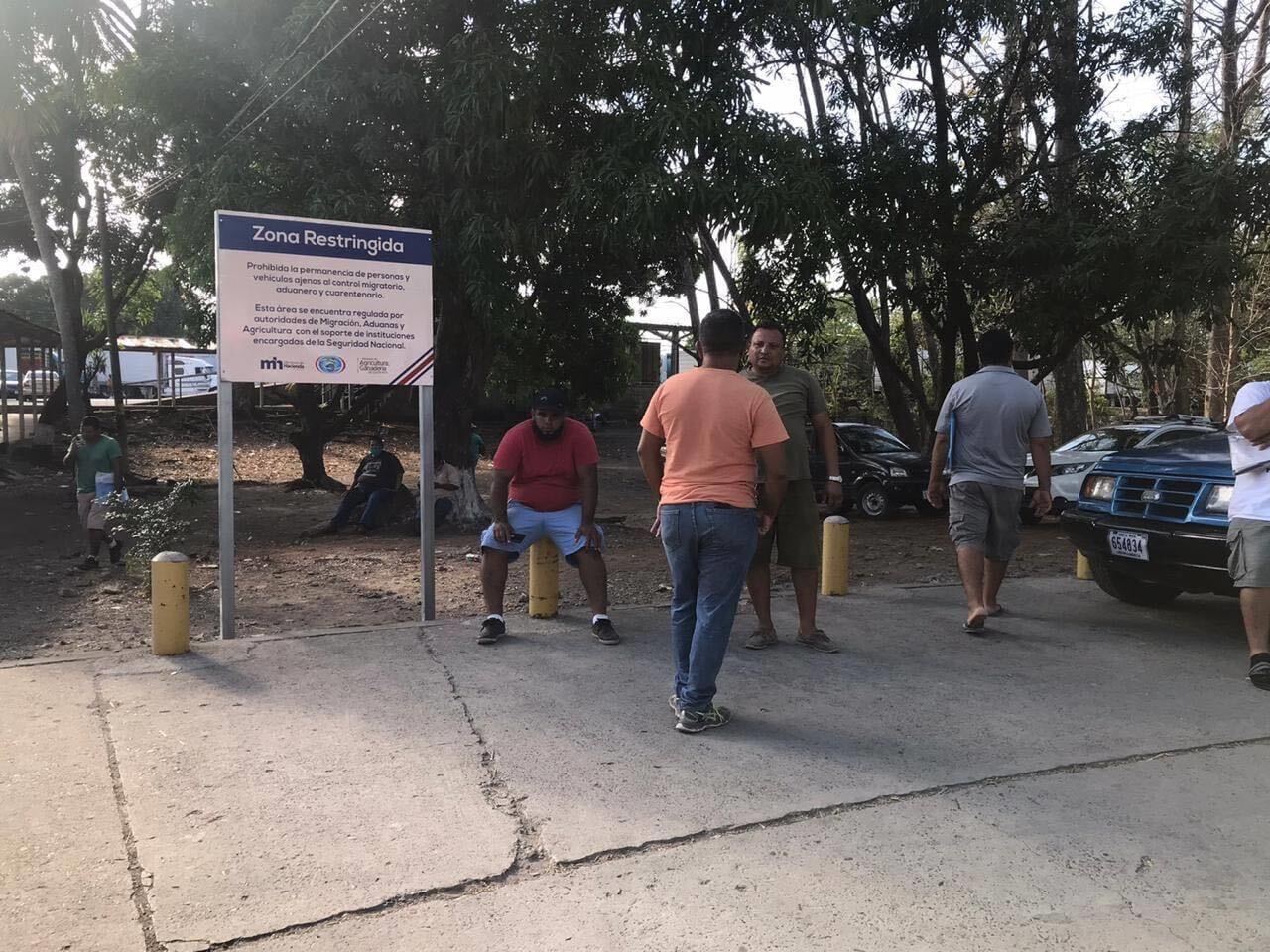
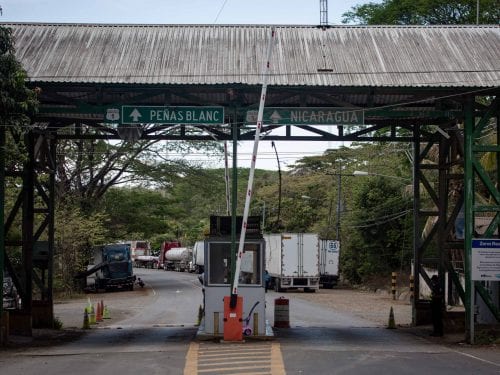
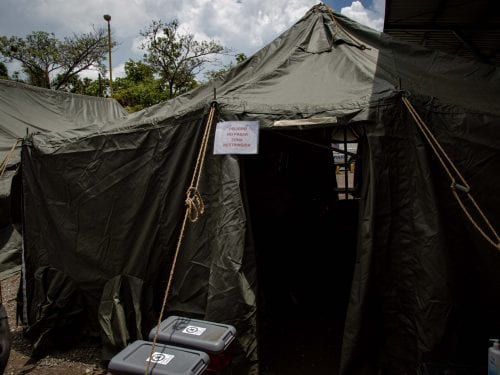
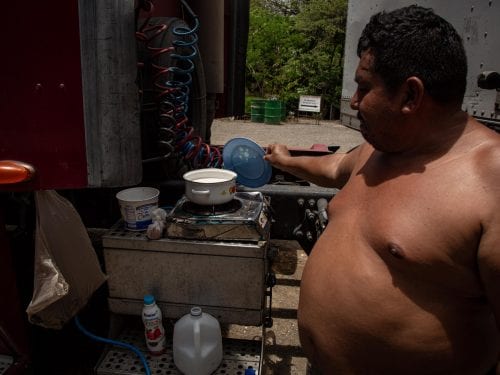

Comments